Do you remember the moment when you first tasted alcohol?
That moment was perhaps so long ago that you don’t even remember it.
Unfortunately, there is a noticeable trend for young people to try alcohol earlier and earlier.
Drinking alcohol is generally accepted behavior. We can refuse to accept that fact, but it is the truth of our world.
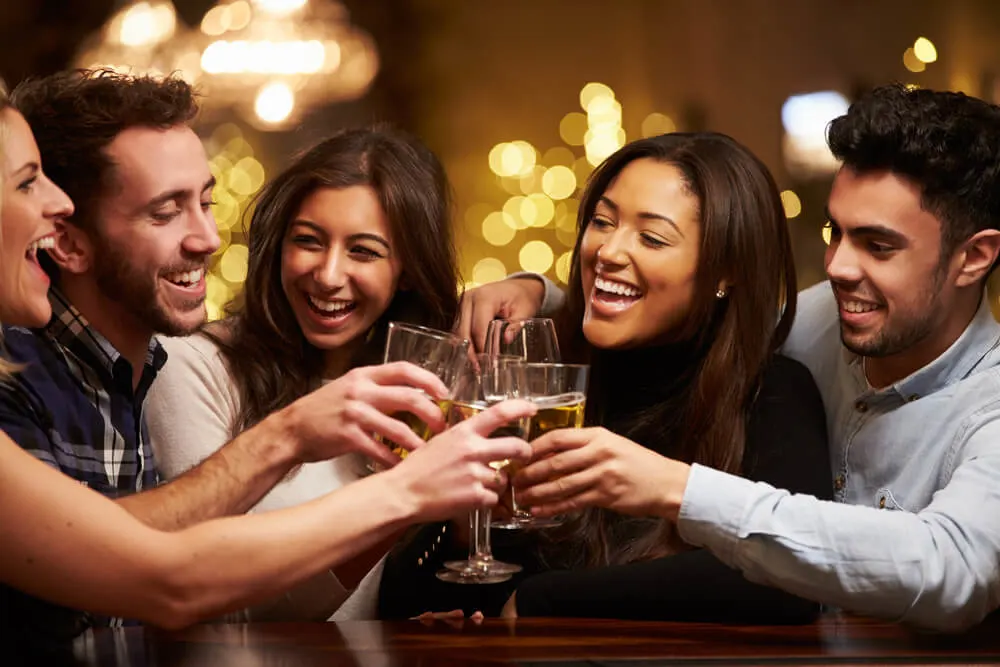
Different cultures and parts of the world have different attitudes towards alcohol, but it is very present everywhere and often highly accepted.
It is alarming that young children are sometimes given alcohol “to fall asleep more easily.”
Ok, and do you remember what alcohol tasted like when you first tried it?
If you remember, that’s great, but if you don’t, we recommend you to check out YouTube videos of people trying alcohol for the first time.
Almost everyone does hate the taste of alcohol at first.
Do you know that 3 million deaths a year are related to alcohol? That is a total of 5.3% of the total number of deaths.
The harmful influence of alcohol can cause 200 different diseases and injuries.
After this scary data about alcohol, how can we not wonder why alcohol is still so popular? In this text, we will try to explain this phenomenon and offer some solutions.
Why do I Hate Alcohol so Much?
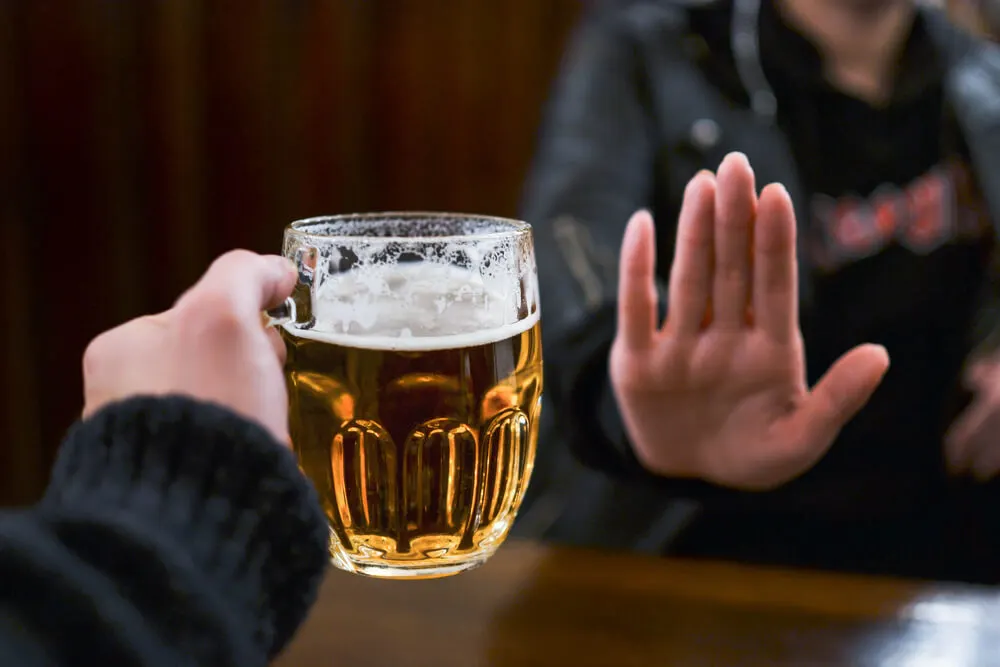
We have already established that alcohol tastes bad the first time it is tasted.
However, over time, even that bad taste is mainly overcome.
The “benefits” that alcohol provides influence us to ignore its sour taste.
Alcohol doesn’t even have to necessarily taste bad.
There are many variations of alcoholic beverages that can be delicious.
The taste of alcohol is not the real reason why you hate it. You hate alcohol because you realize what it does to you.
Maybe you got into an argument and hurt someone you care about under the influence of alcohol.
You’re sick of all the stupid things he makes you do and those bad hangovers when you spend the day in bed instead of being productive.
How Much Alcohol is Too Much?
There is no exact quantitative answer to this question.
We could go into detail that it depends on the person’s gender, weight, age, general health, etc.
The simplest answer to this question would be: Too much alcohol is as much as it endangers your life.
Not everyone who drinks is an alcoholic, and it is possible to drink responsibly.
If you sometimes drink a glass of wine after Italian food, it does not make you an alcoholic.
However, if you have your “Wine o’clock” time as part of your daily routine, that’s already a sign that alcohol is part of your life.
I Hate Drinking Alcohol but Can’t Stop Because it is Fun
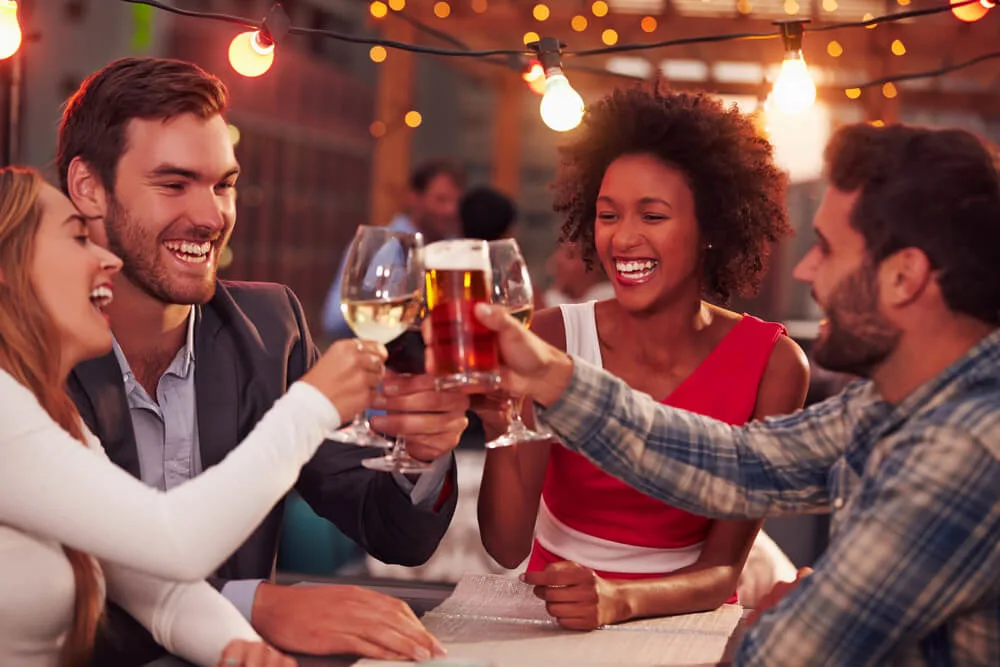
When asked why they drink alcohol, many will answer because it is fun.
Many people turn to alcohol to fight social anxiety.
Alcohol is a mood lifter and can turn a shy person into a party animal and social butterfly after a few drinks.
You are probably familiar with the scenario when you find yourself at a party, and you are bored and uncomfortable.
You’re nervous, anxious about the people at the party, or thinking about the responsibilities you neglected to be there.
Maybe you are embarrassed to approach a person you like.
At that moment, alcohol appears to “save” things.
Suddenly nothing bothers you anymore, you don’t think about obligations, you like everyone, and everything is fantastic to you.
Also, alcohol can be a “pain reliever,” serving as an escape from boring and depressing reality.
Some would say that alcohol gives superpowers, but that is far from the truth.
“When you drink alcohol, you are just borrowing happiness from tomorrow.”
— Jessica Nigri
That energy and that feeling you get when you drink alcohol will turn into a nasty hangover the next day.
What Are The Consequences of Drinking Too Much?
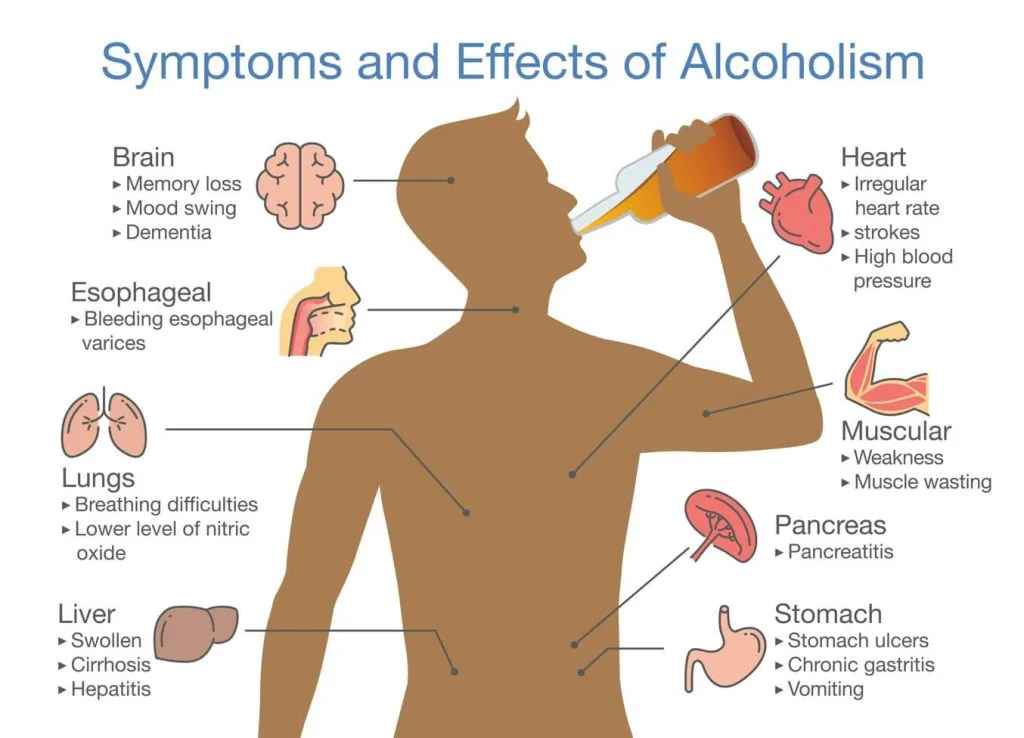
Alcohol is a huge potential threat to health and safety.
We mentioned in the introduction to this article how many different types of diseases and injuries are associated with alcohol.
In addition to the health consequences, it can also affect the legal matters of the individual.
Because it affects judgment, excessive alcohol consumption can affect various behaviors that can easily involve the police.
Alcohol-related offenses are often:
- assaults;
- sexual assaults;
- domestic violence;
- property damage;
- committing crimes;
- drunk driving.
All this, of course, leads to social consequences, such as:
- Ruining a relationship with a significant other, or the impossibility of achieving a stable relationship, because no one wants to put up with a person with drinking problems;
- Poor performance at work, losing a job, and inability to find an adequate job;
- Financial problems due to spending too much money on alcohol or bad decisions due to alcohol;
- Avoidance by friends and a limited social circle of people.
Why is it so Hard to Stop Drinking Alcohol?

Let’s look at the bigger picture first; alcohol is all around us.
Drinking alcohol is considered fun and often considered a regular activity as well.
Let’s just look at all those alcohol ads. Everything is fantastic, colorful, and precisely what the average consumer wants.
From having fun and sipping cocktails on the beach to playing pool with the boys over a cold beer, marketers are portraying alcohol as a fun activity.
Alcohol is part of the tradition and can even be considered offensive if we refuse to drink at some events.
It is socially very desirable to drink alcohol. Surely you know how everyone looks at someone who doesn’t want to drink at parties or even family events.
Ok, that would be the broader picture; let’s now look at the narrower picture, which is ourselves.
Drinking alcohol is a habit, and as such, it can be stopped or reduced to the extent that it does not endanger our quality of life.
Habits are a part of our lives, but it is not good when we become prisoners to them, especially if they are bad habits.
Is it Bad to Stop Drinking Alcohol?
The simple answer would be that it is not bad to stop drinking alcohol.
As we have already established, alcohol is a matter of habit. It doesn’t matter if you want to have “fuel for a good time” with this habit, reward yourself after a hard day, or escape the harsh reality.
Maybe you are responsible for how you are drinking and not letting it affect your life. That is commendable and responsible on your part.
If you’re wondering if it’s bad to stop drinking, you’re probably afraid of losing some of the “benefits” that alcohol provides.
Try this: imagine yourself in a few years if you stop drinking so much that it endangers your daily life and yourself who quit drinking. What do you like more?
Why Does Alcohol Make Me Hate Myself?
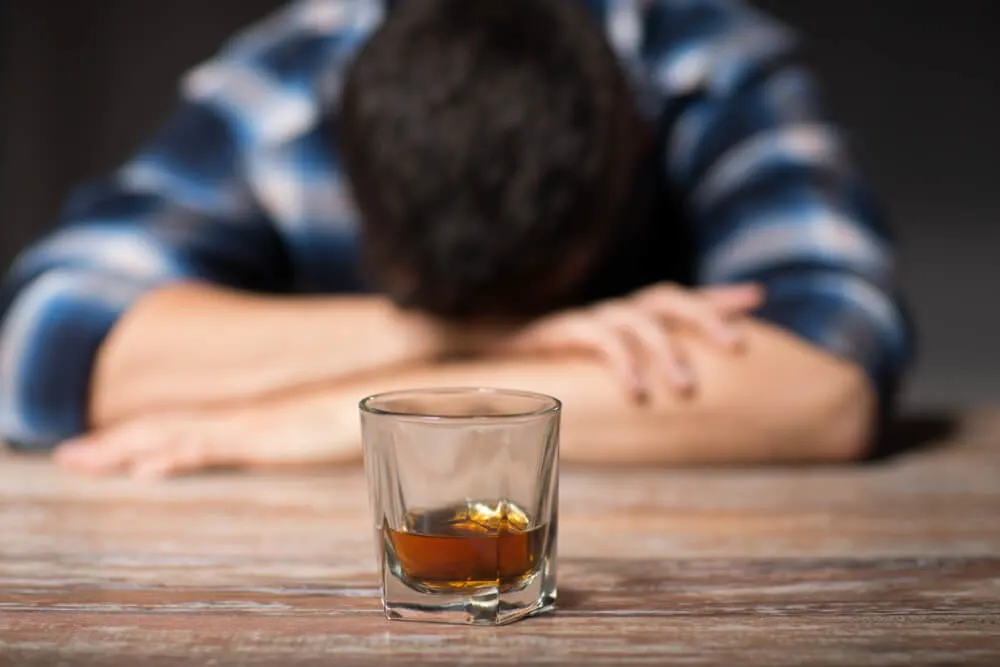
If something you do often makes you hate yourself, it’s a clear sign that the habit seriously compromises your quality of life.
Because of the inability to escape from that bad habit, you feel mentally weak.
You may feel like you’ve let yourself or others down.
From the expectation of having a successful career, now all that remains is a dead-end job that makes you depressed.
An interesting example is how alcohol habits are passed from parents to children.
Clearly, this behavior pattern is very easily transmitted, and thus, new addicts are created.
However, the completely opposite scenario is also possible. If a person comes from a family where there was domestic violence caused by alcohol, or someone died from alcohol, this can make the individual never drink.
An excellent example that confirms this theory is the example of Cristiano Ronaldo and his father, who died from excessive alcohol consumption.

Cristiano learned from his father’s mistakes. He used it as an example, even as a motivation for his life and career.
He never drinks alcohol, and all football fans, even those who don’t watch football know what he has achieved and what shape he is always in.
How to Stop Drinking Alcohol?
It is always challenging to make a big decision and stop doing something we are used to, especially for people addicted to alcohol.
Usually, something is needed to replace the habit of drinking alcohol.
It must be a positive habit, not something that will create an addiction again.
You don’t trade one addiction for another.
You might be thinking: Why should I even stop? I only drink on weekends anyway.
Weekend warriors or binge drinkers easily enter higher stages of addiction.
After all, aren’t you tired of spending half of every weekend drinking and the other half recovering from drinking?
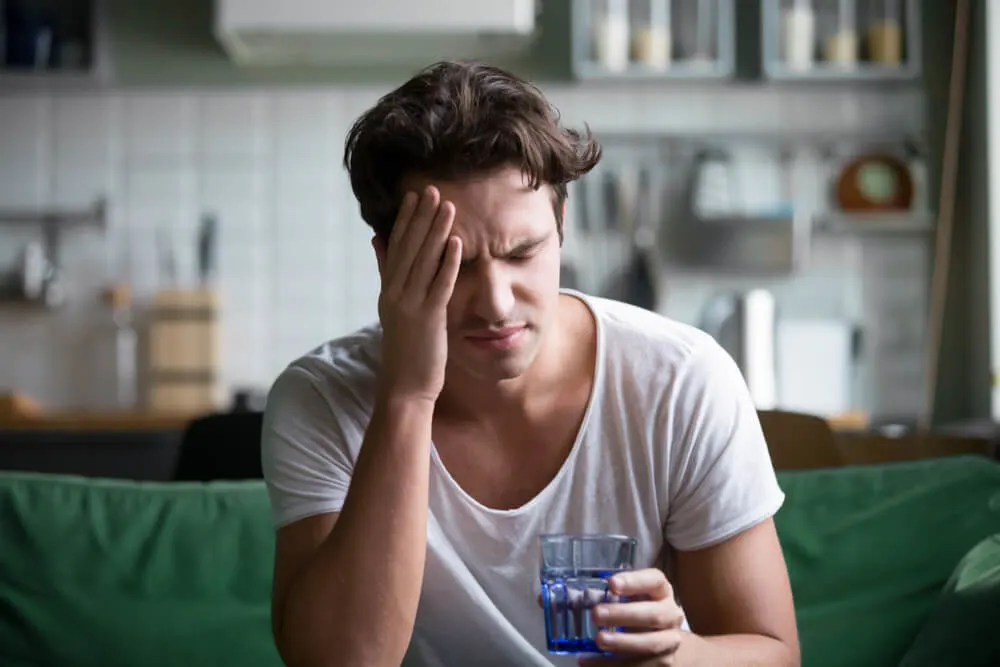
Maybe you’re afraid of losing your magic party potion and being rejected by your friends.
Ask yourself who you are without alcohol, and if you’re worried about your friends, maybe it’s time to think about whether you’re just drinking buddies or whether you’re there to support each other in other aspects of life.
If you are fed up with your job, you are constantly dissatisfied, and you are vain about everything, drinking alcohol is not the solution.
It may “mask” your pain and dissatisfaction at the moment, but in the long term, it only prevents you from facing problems.
Tips on how to stop drinking alcohol:
- Set your goals in life
- Start a new healthy passions
- Educate yourself on how much alcohol is harmful
- Avoid situations that can trigger you to drink again
- Surround yourself with supportive people or groups
What really matters is,
You are in charge of your life.
Having a few drinks does not mean you will become an alcoholic.
However, if you notice that drinking disrupts your life, it’s time to take action.
We found that everything starts with breaking bad habits and establishing new healthy ones .
Cheers to new healthy habits that will make your life happier!
